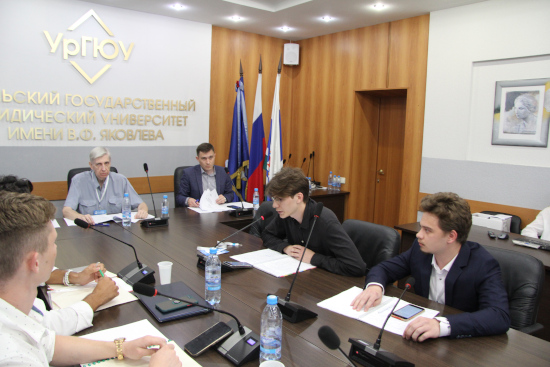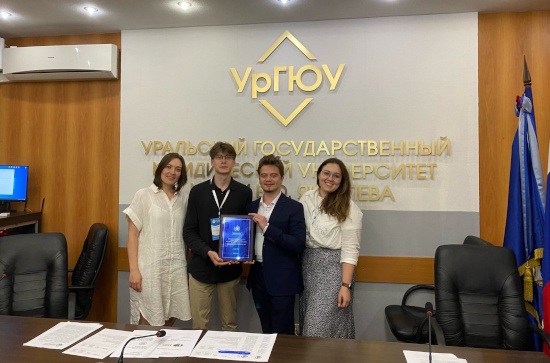PSU Students Win Model UN Competition
Egor Barkhatov and Egor Krupin, undergraduate students in Law at Perm State University (PSU), have won the Model UN competition. PSU winners shared their victory with the team of Peoples’ Friendship University of Russia. The event was held in the format of a model process – a meeting of the Committee on Economic, Social and Cultural Rights, which took place as part of the IX Summer School on Human Rights in Yekaterinburg, Russia.
The Summer School on Human Rights is implemented annually through a consortium of Russian universities running corresponding master’s programs, with a support by the Office of the United Nations High Commissioner for Human Rights. Here at PSU, the Faculty of Law operates a dedicated master’s program “International Protection of Human Rights”.
The recent competition consisted of two stages – the written distant part, and the oral full-time one. In the first round, the teams prepared memorandums from both sides of the fictitious case – the applicant (individual) and the defendant (state). At the second stage, the participants were asked to act as one of the parties. In 2022, the offered case covered migrant child rights’ protection, tools to fight discrimination, the right to education, participation in the local cultural agenda and related social contacts, as well as obligations of the state in corresponding areas.

In contrast to the Model European Court of Human Rights, serving the schools’ case ground, the recent Model Committee became a fresh and encouraging experience – offering several aspects and layers, encouraging to dig deeper, beyond the activities of a separate Committee, providing relevant practices.
Ksenia Kuznetsova and Marina Sukhanova from the Department of Labor and International Law, PSU, took part in the preparation of the Perm team.
“A separate pleasure became communication with experts, the Model Jury. I am grateful to the School’s organization team, and the Consortium in general – for the opportunities provided,”
notes Ksenia Kuznetsova, Head of the Students’ Tutor Support Project Office, Faculty of Law, PSU.
In 2022, 5 teams of the Consortium of Russian universities that implement the master’s program in the international protection of human rights fought for the right to reach the finals competition oral stage – Peoples’ Friendship University of Russia (Moscow), Kazan Federal University (Kazan), PSU (Perm), Ural Federal University (Yekaterinburg) and Ural State Law University (Yekaterinburg).
The competition was judged by Russian experts in international law: Aslan Abashidze, Deputy Chairman of the UN Committee on Economic, Social and Cultural Rights; Alexey Avtonomov, ex-chairman of the UN Committee on the Elimination of Racial Discrimination; Alexey Tsykarev, expert at the UN Permanent Forum on Indigenous Issues.



